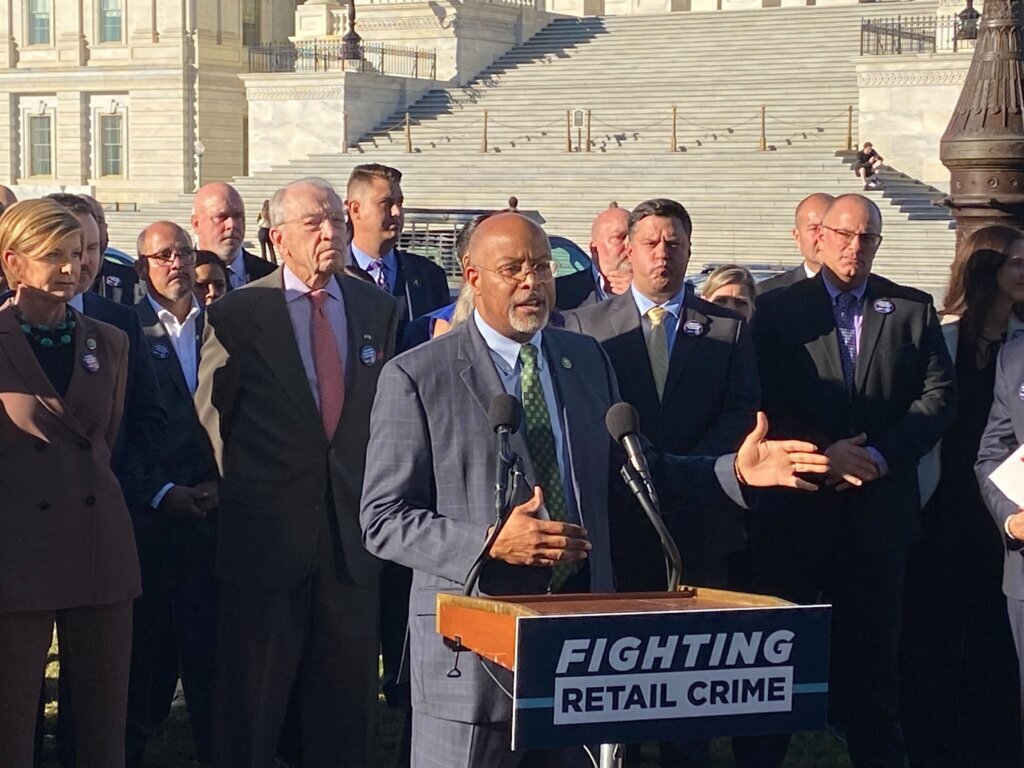Viral videos have been circulating of smash-and-grab robberies at drugstores, grocers and clothing shops. They show aggressive groups using shock and confusion to run in, fill up bags full of merchandise, and then run back out. Along the way a clerk might get assaulted.
The robberies appear chaotic and even somewhat disorganized, but more and more often, they aren’t.
In fact, the increasing frequency and severity of these crimes, coupled with the fact that they appear to be much more organized and even international in scope, is prompting a push from Congress to invest more federal tools to put a stop to them.
Dozens of lawmakers, both Democrats and Republicans of varying ideology, have signed onto the Combating Organized Retail Crime Act, which pushes to increase cooperation between local and federal law enforcement. It also widens the scope of conduct that can lead to charges against someone.
Among the local lawmakers supporting the effort are Maryland representatives Glenn Ivey, Kweisi Mfume and David Trone.

“We’ve got stores that have stopped restocking their shelves, because they if they leave it out, they get hit by these retail theft rings,” said Ivey during a news conference on Capitol Hill on Thursday.
And retailers say these rings are much more organized than one might think.
“The person that’s coming into our shops and stealing the product or threatening our associates is not necessarily the boss, or the one that’s making the decisions. They’re just the person that’s been assigned to go do this type of crime,” said Scott McBride, who is the chief asset protection officer for American Eagle Outfitters. “The chaos is also intentional, to create an environment of fear within the customer base that’s in the store, within the associate base that’s in the store at the time.”
And he said the crimes are escalating in violence, frequency and severity.
“This is what they do for a living. This is how they’re thriving and profiting, regardless of what’s happening with inflation, or unemployment or the like,” added Ivey.
Retailers argue that it has a negative impact on consumers, even if shoppers walk out of the store without having lost anything.
“That’s where you’re seeing price increases,” said Liz Burkholder, who is the director of asset protection and investigations with JC Penney. “You’re seeing loss of sales tax, which impacts resources for communities to be able to combat some of this crime as well.”
Ivey said the federal government can help local departments that might not have the tools to handle this spike in robberies.
“Back when I was State’s Attorney, people would steal things in Maryland, but then take it over to Virginia to try and sell it, or use the jurisdictional lines to try and protect themselves from law enforcement catching them,” Ivey said. “If you federalize it … they can afford to be tougher on some of these cases, because they can aggregate the evidence and the information and build cases that capture the whole network, as opposed to the handful of people who are sweeping things off the shelves.”
The National Retail Federation estimates more than $112 billion in merchandise was stolen last year, with 67% of retailers saying those who do the stealing are becoming more violent and more aggressive.
And while McBride said retailers can have some success stopping the resale of stolen goods on the secondary market, it doesn’t happen often.
“In some cases, they get shipped to other countries and liquidated in that fashion,” McBride said. “It is a very complex and multilayered problem, both on how they’re stolen, how they’re fenced, how the products are moved, how the money is flowing.”
One robbery can result in thousands or even tens of thousands of dollars worth of merchandise being taken out the door.
“It’s not specific to necessarily states or regions,” Burkholder said. “It does operate across jurisdictions, internationally as well.”








